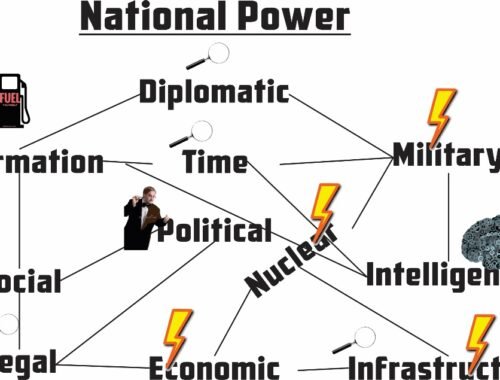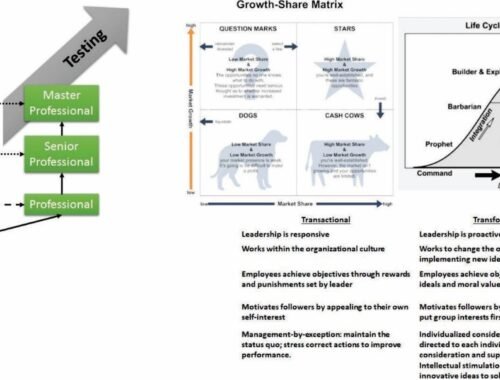The Virtuous Republic, Part 3: What is a Virtuous Government?
Abstract: We have a problem, one that affects all Americans, regardless of where they fall on the political spectrum. Trust in government is at historic lows, yet reelection rates in the House of Representatives is approximately 97% and over 90% for the Senate. I suspect this problem is symptomatic of two problems: we are losing the republic and we have nearly lost our sense of and understanding of virtue. This blog looks at the second problem: virtue in government. It develops a virtue assessment framework based on Plato’s The Republic, as discussed in Part 2 of this series and extended to reflect modern society. This draft uses measures with publicly available data that are congruent with Plato’s concept. Based on this drat framework, the US virtue score is 6.53 out 10. That is an unproven number and needs a great deal more investigation to ensure that it is accurate and meaningful. But if it is in the ballpark, it should concern all citizens of the Republic, regardless of where they stand on the political spectrum.

We have a problem, one that affects all Americans, regardless of where they fall on the political spectrum. Trust in government is at historic lows, yet reelection rates in the House of Representatives is approximately 97% and over 90% for the Senate. On the whole, there seems to be cognitive dissonance going in within the electorate and the political parties. The political parties understand the lack of trust, but does it mean anything if the reelection rates are so high? Do people collectively mistrust the government, but trust their representatives and chosen political party? Do representatives represent the electorate or their political party?
This disparity is widely known, but I have seen little, if any, discussion about what it means for a republic. Can we have a virtuous republic, let alone a republic under these conditions?
The founders of the US republic patterned on the Roman Republic. They used lessons they learned from reading Greek and Roman author during the classical studies. Overtime, we have diluted or eliminated some of their safeguards through constitutional amendments or simply ignoring parts of the Constitution we find inconvenient.
What I find really interesting about graph is it peaked with the Kennedy administration and started a major decline with Johnson—the power behind the Great Society. The Great Society was a key inflection point in the Powershift Series. The XVI and XVII Amendments discussed in Part 4 of the series powered and made this inflection point possible.
Perhaps the size question noted in Part 2 of this series in more a function of government size and superpower status than physical size. When vast amounts of money and power are at stake, the siren call of temptation gets far harder to resist. Even Odysseus, with his ears stuffed, might not resist their call.
Strong laws that constrain politicians and bureaucrats and severely punish them, as discussed in Part 1 of this series, are one step. Politicians can ignore or repeal any law they make. Virtue is the key to both short-term and long-term change. In the short-term, we need to get politicians to pass and enforce these laws and in the long-term to develop a virtuous society by teaching virtue, electing politicians that practice virtue and making virtue the default meme within society.
The tables below are a first draft of a virtuous government framework based on Plato’s The Republic and extended to provide great fidelity and coverage. It is also based on proven sources, such as the World Population Review for data input. Table 2 provides weighted scores for each factor. Each factor has a potential score of 10. Justice related scores, The Rule of Law and Corruption are weighted 3 given their centrality in the Platonic analysis. The total US score is 6.56 out of 10.
There are other factors to consider outside of these measures that may be harder to measure, especially across countries. These can include governments deliberately exposing unwitting citizens to hazards to assess their effects, governments engaging in unauthorized surveillance and seizure, government secretly overthrowing other governments for some perceived advantage in the game of states, and many others. Ideally, these are reflected in the corruption measure, but may not be.
| Table 1 Virtue Factors | |
| Measure | Notes |
| Rule of Law | Justice related factor. This factor is key in both the Platonic analysis and for a functioning, virtuous society. However, if the laws are not just, then simply having a high score here may be misleading. |
| Freedom | The Constitution says to secure the blessings of liberty. Liberty and freedom are related, but not directly the same. Ipediaa says, “The main difference between liberty and freedom is that liberty is the state of being free from oppressive restrictions or control imposed by authority on one’s way of life, behaviour, or political views, while freedom is the power or right to act, speak, or think as one wants.” The assessment system uses freedom because that is the major source of data. |
| Education | Plato says education is critical to a republic. Education must teach people to think critically and to understand virtue and act virtuously. |
| Prosperity | |
| GNP | Wealth is a measure of prosperity and how well a state governs itself. But as a spot measure, it does not show how the wealth is employed and how it is spread throughout the citizens. |
| Poverty | Poverty helps to show how well a state uses its wealth to help its citizens, especially its most vulnerable ones. However, I may also show a lack of virtue depending on how the state dispenses its wealth. A trend is perhaps more indicative than a point in time measurement. |
| Wealth Distribution | Wealth distribution is also a better trend metric. Mass migrations of poor, unskilled people can influence point measures into a wealthy state. The way a state distributes wealth may also deny liberty to other citizens. A better measure may be how people earn/obtain their wealth. |
| Happiness | Plato singles out happiness as a prime objective of a republic. But a people can be happy and poor or happy and at risk of invasion. |
| Corruption | Corruption can take many forms throughout society. Here, we are most concerned with government and political corruption to enrich themselves and remain in office. Politicians gaining wealth beyond their salaries is one indicator. Regulatory capture is another. |
| Crime | Crime, with the tenuous exception of Robin Hood, is anti-thetical to virtue. But what about stealing bread to feed your family because of corrupt systems as in ‘Les Miserables’? We need to understand not just crime statistics, but why people commit crimes. |
| Safety | Safety has many dimensions. The most obvious and he generally measured is safety from violence. But there is also safety from arbitrary bureaucratic actions, safety from asset seizure, and other not so obvious dimensions. |
| Table 3 Data Sources | |
| Measure | Source |
| Rule of Law | World Justice Project
https://www.nccadvocacy.org/post/the-world-justiceproject-rule-oflaw-index-2024 |
| Freedom | https://worldpopulationreview.com/country-rankings/crime-rate-by-country |
| Education | https://worldpopulationreview.com/country-rankings/education-rankings-by-country
https://worldostats.com/education/education-quality-index-by-country/ |
| Prosperity | |
| GNP | https://worldpopulationreview.com/country-rankings/gdp-per-capita-by-country
https://worldpopulationreview.com/country-rankings/gnp-by-country#top-10-countries-with-the-highest-gross-national-product-united-nations-2020-gni-current-us |
| Poverty | https://worldpopulationreview.com/country-rankings/poverty-rate-by-country |
| Wealth Distribution | https://worldpopulationreview.com/country-rankings/wealth-inequality-by-country |
| Happiness | https://worldpopulationreview.com/country-rankings/happiest-countries-in-the-world |
| Corruption | https://www.transparency.org/en/cpi/2024 |
| Crime | https://worldpopulationreview.com/country-rankings/crime-rate-by-country |
| Safety | https://worldpopulationreview.com/country-rankings/crime-rate-by-country |





